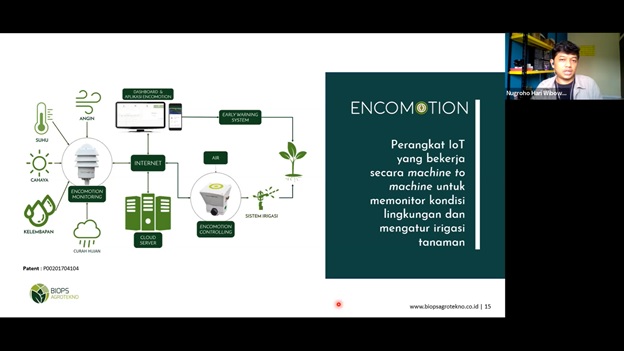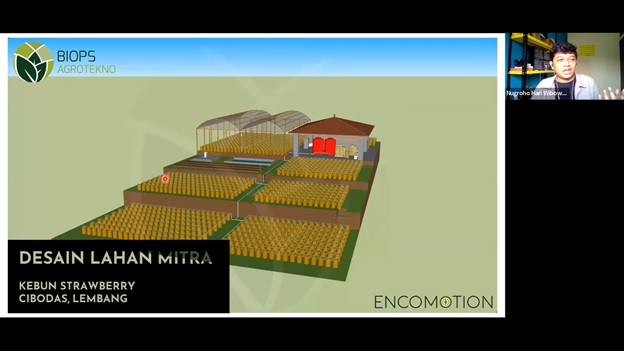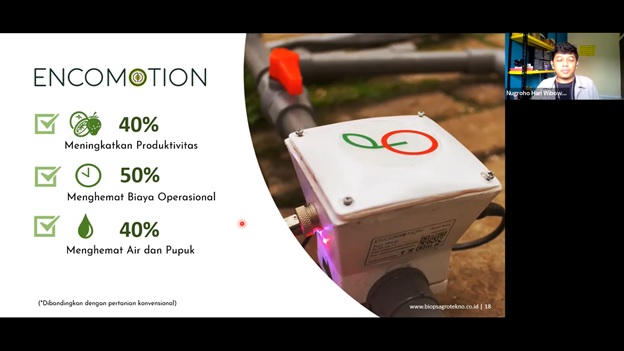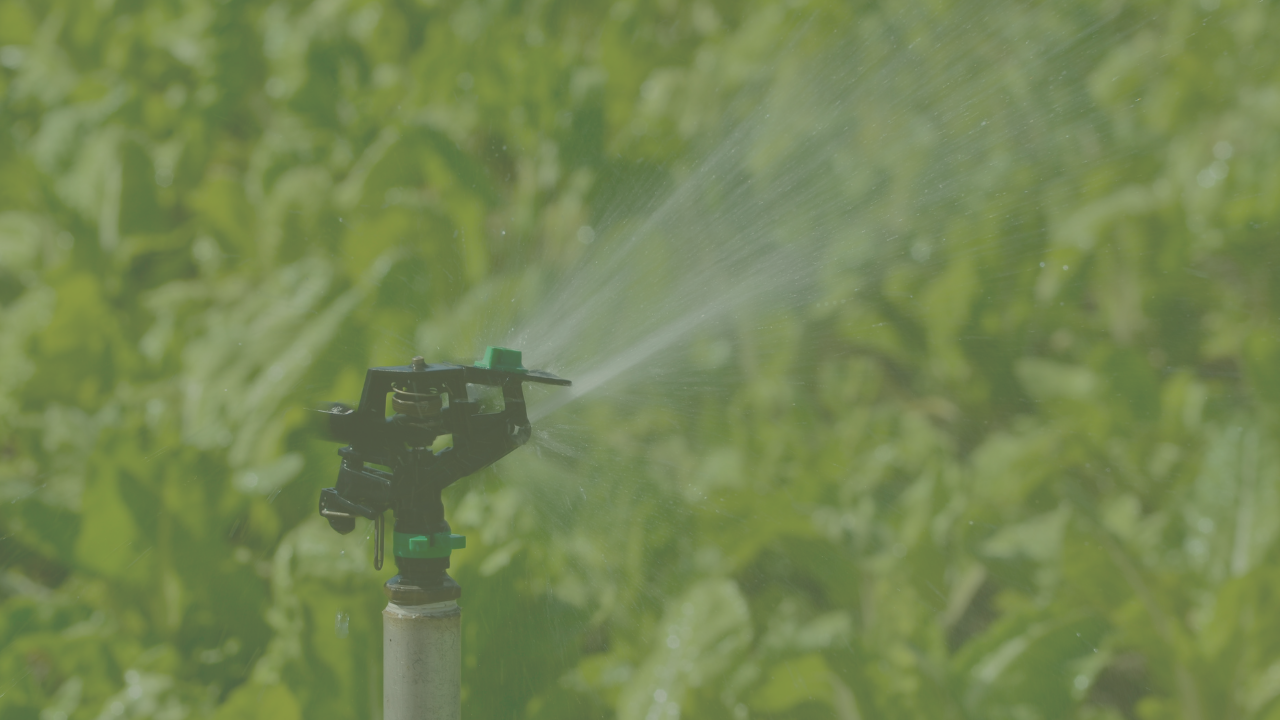Today’s weather and climate are highly volatile and unpredictable. What will be the fate of Indonesian farmers in facing this uncertainty? Appropriate irrigation via sensor device technology and the internet of things (IoT) may be the solution. SBM ITB invited Nugroho Hari Wibowo, Co-founder and CTO of PT BIOPS Agrotekno Indonesia, as a guest lecturer on Tuesday (5/4/2022) to help students understand the intricacies of technology and its commercialization.
 “In Industry 4.0, we not only focus on just automation but also on data exchange between devices. We’re here to help farmers by installing an automated plant watering system. We collaborate with various technological devices in it,” said an Engineering Physics ITB alumni in 2010.
“In Industry 4.0, we not only focus on just automation but also on data exchange between devices. We’re here to help farmers by installing an automated plant watering system. We collaborate with various technological devices in it,” said an Engineering Physics ITB alumni in 2010.
The first device is a sensor device that collects temperature, light, and humidity data in the field. The second device is for data reception and processing algorithms. The final device is the watering device, which has been adjusted based on the analysis of the collected data.
Nugroho claimed to increase the effectiveness and efficiency of irrigation based on different plant environmental conditions using this automation tool called Encomotion. The results are an increase in productivity by 40%, a 50% reduction in operational costs, and a 40% reduction in water and fertilizer costs. Farmers who do not have access to scientific knowledge will benefit greatly from this. It can also be highly beneficial to agricultural businesses with large areas.
 Other Agricultural Challenges
Other Agricultural Challenges
In addition to the irrigation issues that have been resolved, PT BIOPS Agrotekno Indonesia continues to expand its business list based on important issues to farmers. Such as using artificial light to boost plant metabolism, optimizing fertilizer use, and, most importantly, reducing the use of pesticides and insecticides that harm humans and the environment.
“They are well aware that pesticide use is hazardous to themselves, other people, and other living things. They are irritated when spraying pesticides and insecticides without masks, gloves, and raincoats. However, they continue to use chemical pesticides at a high cost to guarantee a larger harvest,” Nugroho said.
Let us continue to hope that, in the future, Indonesia will be self-sufficient in food and will be able to meet the needs of its people during the demographic growth by utilizing agricultural technology.





